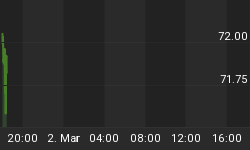The further fate of America's consumer borrowing and spending binge is of major concern at this juncture. Last year, in particular, it was the key prop to the U.S. economy. If it definitively falters, the recovery will surely derail.
The creation of a huge carry trade in bonds was crucial in lowering mortgage rates. Consequently, a massive mortgage refinancing bubble was provoked, characterized by massive home equity extraction. This freshly created equity provided the funds for simultaneous bubbles in housing and stocks. Soaring pseudo wealth was then offered as collateral to facilitate the borrowing binge.
All of a sudden, sliding asset prices have hammered these highly leveraged asset and credit bubbles. Ironically, the trigger was pulled by a string of strong economic data. Fretting about higher inflation and a possible hike in short-term rates, heavily leveraged investors started cautionary liquidations. But given the leverage, more and more selling was bound to follow. In short, investors had simply become too optimistic, giddy from the artificially low interest rates.
There can be no question that, in time, badly performing financial markets will take their toll on general sentiment. The change in sentiment always comes after the markets have already declined dramatically - falls that most people are not prepared for. A recently published OECD report spells pure optimism about the world economic prospects and thus provides a warning that markets may be about to fall.
In its March Quarterly Review, under the title 'Appetite for Risk Lifts Markets,' the Bank for International Settlements in Basel, Switzerland, reports, "Financial markets around the world rallied into the new year, adding to the impressive gains recorded in 2003. Improvements in global growth prospects and corporate finances, coupled with a robust appetite for risk, underpinned increases in equity and credit prices. Not even further revelations of corporate malfeasance seemed to unsettle investors." We hasten to add that the Bank has been highly critical of this development.
As we have already said, the sudden rise in long-term U.S. rates, which started in mid-March, was not caused by bad news, but by unexpectedly good news. For us, it is an unbelievable irony that the strong employment gains were so coveted by the Fed yet, at the same time, ultimately proved to be the needle that pricked the bond bubble.
To quote Ramsay King on this point: "It will be an irony of biblical proportion if dubious employment gains spook the markets, which then impairs the economy, which in turn costs Bush the election. That irony would be compounded if there was any political maneuvering or pressure to produce great but unwarranted employment numbers."
For us, and for Mr. King, it is a great irony that the prevailing perception of a strongly rebounding U.S. economy, which caused interest rates to rise so suddenly, is so badly flawed in the first place. Consumer spending has effectively slumped during the first quarter. What's more, the recent impairment of the mortgage refinancing bubble is a compelling reason to assume that the consumer-spending slump will continue to get worse.
Thanks to all these bubbles, the American consumer borrowed a mind-boggling $879.9 billion last year, having borrowed $775.7 billion the year before. However, most of the borrowed money went into housing and stock purchases, fueling the rise in their prices, rather than into living expenses.
Pursuing the discussion about the outlook for stock markets, it strikes us that the question of potential buyers and their finances is never touched upon. In the late 1990s, the necessary funding came primarily from American and foreign corporations through huge stock buybacks and frenzied merger and acquisition activity. Private households just jumped on the running bandwagon.
Since 2000, all buying on these accounts has vanished. Last year, private households stepped in as the standalone buyer. With poor income growth and virtually no savings at their disposal, their stock buying implicitly depended on heavy borrowing from the mortgage-refinancing boom. But having largely depleted this source of funds, we see a grossly overvalued stock market without any potential buyers.
During the past two to three years, the U.S. economy and its financial system obtained an unusually high dose of monetary and fiscal stimulus. Yet it was really the interplay of three bubbles - in bonds, housing, and mortgage refinancing - that enabled the consumer to sustain such an elevated level of spending. Meanwhile employment and income growth fell precipitously.
Manifestly, these policies, having involved heavy rigging of markets, were a palliative that prevented disaster for the U.S. economy in the short run. But instead of redressing the economic and financial imbalances from the prior boom, these policies propelled the imbalances to new extremes. After all, the U.S. economy is now, in many ways, in worse shape than ever before.
There has been some involuntary unwinding of the global reflation trades. Yet we have still only seen the tip of the iceberg. It is our view that the leverage used in the carry trading of bonds, in particular, has grown to such an absurd scale that orderly deleveraging is now impossible.
To point out the obvious: The asset and credit bubbles that have been inflating consumer spending - bonds, stocks, mortgage refinancing - are plainly deflating. The property bubble will soon follow for lack of funding. In short, we see savage deflation for the asset markets, but stagflation for the economy - and it is so obvious that no one can see it. This will soon change.
Regards,















